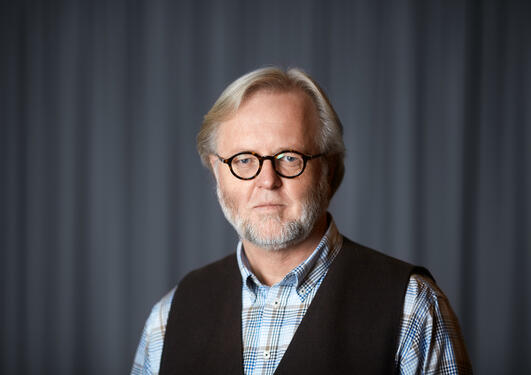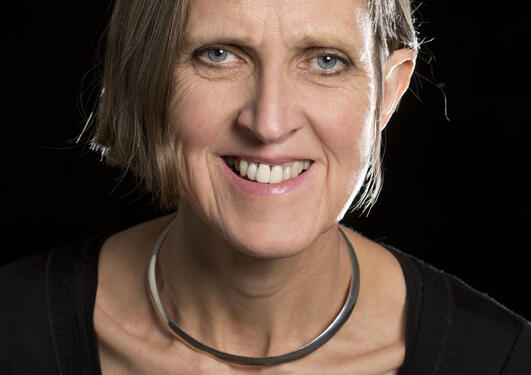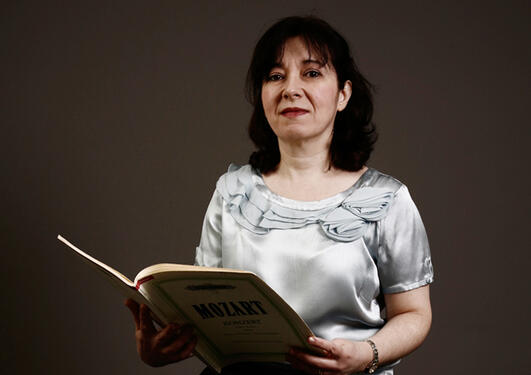Georgina Born
Music studies, present and future: Interdisciplinarity and innovation in our research––and in our objects of study
Main content
We have inherited approaches to the study of music that are a century old. How can music studies preserve the intellectual rigour characteristic of earlier paradigms in musicology, while reshaping its focus and intellectual style to be more adequate to the present and future? In this lecture I discuss the pros and cons of distinctive forms of interdisciplinarity both in musicological research and in practice-based research (otherwise called artistic research or arts-based research). With reference to ethnographic and historical material, I make the case for an interdisciplinary theoretical framework centred on music’s mediation. The ‘MusDig’ research program––which comprises a research group that I’ve directed since 2010, and which centres on nine ethnographies examining the transformation of music by digitization––embodies this approach in two senses. In a first sense, interdisciplinarity is characteristic of the intellectual approach taken in our work: for as well as musicology, ethnomusicology and popular music studies, anthropology, sociology, art history, science and technology studies, sound studies and new media studies also contribute to the analytical framework that we develop around the core concept of mediation. But comparison and the analysis of difference between music cultures is also methodologically central to MusDig––a case set out in my paper ‘For a relational musicology’ (2010) along with the invaluable contribution made by infusions of ideas from other disciplines. But the second sense in which interdisciplinarity arose is through the focus in the MusDig ethnographies on interdisciplinary practices that span music, on the one hand, and technology and science, on the other; for interdisciplinarity is at the heart of the local and transnational, art and popular music practices we observed in the MusDig research––from the users of digital audio workstations in the studios of Nairobi and Buenos-Aires, through the hackers and circuit-benders of the Montreal and British Noise undergrounds, to the academic programs that support present-day electroacoustic composition. What can be learned, I ask, from addressing interdisciplinarity and innovation both in our own music research methodologies and as a feature of the musical cultures that we study?
Biography
Georgina Born is Professor of Music and Anthropology at Oxford University and a Professorial Fellow of Mansfield College. Earlier she worked as a musician on cello and bass guitar, performing with the groups Henry Cow, Art Bears, Mike Westbrook Orchestra and occasionally the Michael Nyman Band and The Raincoats, as well as playing improvised music as a member of the London Musicians’ Collective and with Derek Bailey’s Company.
Georgina Born’s work combines ethnographic and theoretical writings on music, media and cultural production. Her books are Rationalizing Culture: IRCAM, Boulez, and the Institutionalization of the Musical Avant-Garde (1995); Western Music and Its Others: Difference, Representation, and Appropriation in Music (edited with David Hesmondhalgh, 2000); Uncertain Vision: Birt, Dyke and the Reinvention of the BBC (2005); Music, Sound and Space: Transformations of Public and Private Experience (2013); Interdisciplinarity (edited with Andrew Barry, 2013); and Improvisation and Social Aesthetics (edited with Eric Lewis and Will Straw, 2017). Since 2010, Born has directed the research programme ‘Music, Digitisation, Mediation: Towards Interdisciplinary Music Studies’, funded by the European Research Council, which examines the transformation of music by digitisation and digital media through ethnographies in seven countries in the developing and developed world. Among her visiting professorships are, from 2013 to 2015, holding the Schulich Distinguished Professorship in Music at McGill University, in 2014 the Bloch Distinguished Professorship in the Department of Music, University of California, Berkeley, and from 2014 being Honorary Professor in Anthropology at University College London. She is a Fellow of the British Academy where she Chairs the section on Culture, Media and Performance.





